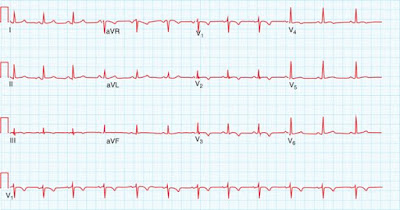Cardiomyopathy is a progressive disease of the myocardium, or heart muscle. In most cases, the heart muscle weakens and is unable to pump blood to the rest of the body as well as it should. There are many different types of cardiomyopathy caused by a range of factors, from coronary heart disease to certain drugs. These can all lead to an irregular heartbeat, heart failure, a heart valve problem, or other complications.
Medical treatment and follow-up care are important. They
can help prevent heart failure or other complications. Cardiomyopathy generally
has four types.
Dilated cardiomyopathy
The most common form, dilated cardiomyopathy (DCM), occurs
when your heart muscle is too weak to pump blood efficiently. The muscles
stretch and become thinner. This allows the chambers of your heart to expand. This
is also known as enlarged heart. You
can inherit it, or it can be due to coronary artery disease.
Hypertrophic cardiomyopathy
Hypertrophic cardiomyopathy is believed to be
genetic. It occurs when your heart walls thicken and prevent blood from flowing
through your heart. It is a fairly common type of cardiomyopathy. It can also
be caused by long-term high blood pressure or aging. Diabetes or
thyroid disease can also cause hypertrophic cardiomyopathy. There are other
instances that the cause is unknown.
Arrhythmogenic right ventricular dysplasia (ARVD)
Arrhythmogenic right ventricular dysplasia (ARVD) is a
very rare form of cardiomyopathy, but it’s the leading cause of sudden death in
young athletes. In this type of genetic cardiomyopathy, fat and extra fibrous
tissue replace the muscle of the right ventricle. This causes abnormal heart
rhythms.
Restrictive cardiomyopathy
Restrictive cardiomyopathy is the least common form. It
occurs when the ventricles stiffen and cannot relax enough to fill up with blood.
Scarring of the heart, which frequently occurs after a heart transplant, may be
a cause. It can also occur as a result of heart disease.
Other types of Cardiomyopathy
Most of the following types of cardiomyopathy belong to
one of the previous four classifications, but each has unique causes or
complications.
Peripartum
cardiomyopathy occurs
during or after pregnancy. This rare type occurs when the heart weakens within
five months of delivery or within the final month of pregnancy. When it occurs
after delivery, it’s sometimes called postpartum cardiomyopathy. This is a form
of dilated cardiomyopathy, and it’s a life-threatening condition. There’s no
cause.
Alcoholic
cardiomyopathy is
due to drinking too much alcohol over a long period of time, which can weaken
your heart so it can no longer pump blood efficiently. Your heart then becomes
enlarged. This is a form of dilated cardiomyopathy.
Ischemic
cardiomyopathy occurs
when your heart can no longer pump blood to the rest of your body due to coronary
artery disease. Blood vessels to the heart muscle narrow and become blocked.
This deprives the heart muscle of oxygen. Ischemic cardiomyopathy is a common
cause of heart failure. Alternatively,
nonischemic cardiomyopathy is any form that isn’t related to coronary artery
disease.
Noncompaction
cardiomyopathy, also called
spongiform cardiomyopathy, is a rare disease present at birth. It results from
abnormal development of the heart muscle in the womb. Diagnosis may occur at
any stage of life.
When cardiomyopathy affects a child, it’s called pediatric cardiomyopathy. If you have
idiopathic cardiomyopathy, it means there’s no known cause.
Risk factors of Cardiomyopathy
Cardiomyopathy can affect people of all ages. Major risk
factors include the following:
- a family history of cardiomyopathy, sudden cardiac arrest, or heart
failure
- coronary heart disease
- diabetes
- severe obesity
- sarcoidosis
- hemochromatosis
- amyloidosis
- heart attack
- long-term high blood pressure
- alcoholism
According to research, HIV, HIV treatments, and dietary and lifestyle factors can also increase your risk of cardiomyopathy. HIV can increase your risk of heart failure and dilated cardiomyopathy, in particular. If you have HIV, talk to your doctor about regular tests to check the health of your heart. You should also follow a heart-healthy diet and exercise program.
Symptoms of
cardiomyopathy
The symptoms of all types of cardiomyopathy tend to be
similar. In all cases, the heart cannot adequately pump blood to the tissues
and organs of the body. It can result in symptoms such as:
- general weakness and fatigue
- shortness of breath, particularly during exertion or exercise
- light-headedness and dizziness
- chest pain
- heart palpitations
- fainting attacks
- high blood pressure
- edema, or swelling, of your feet, ankles, and legs









No comments:
Post a Comment